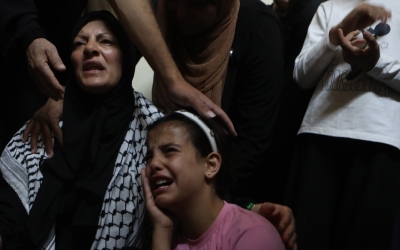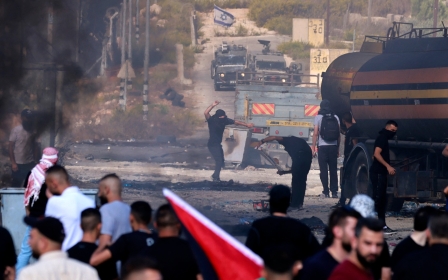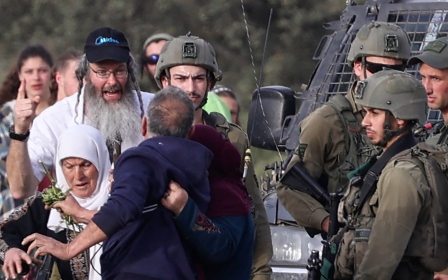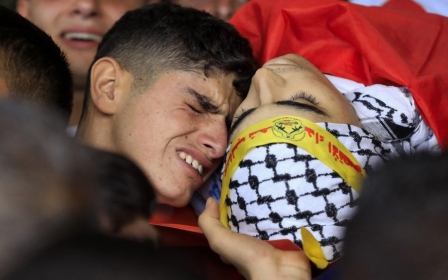Settler terrorism: Palestinians are becoming prisoners in their own homeland
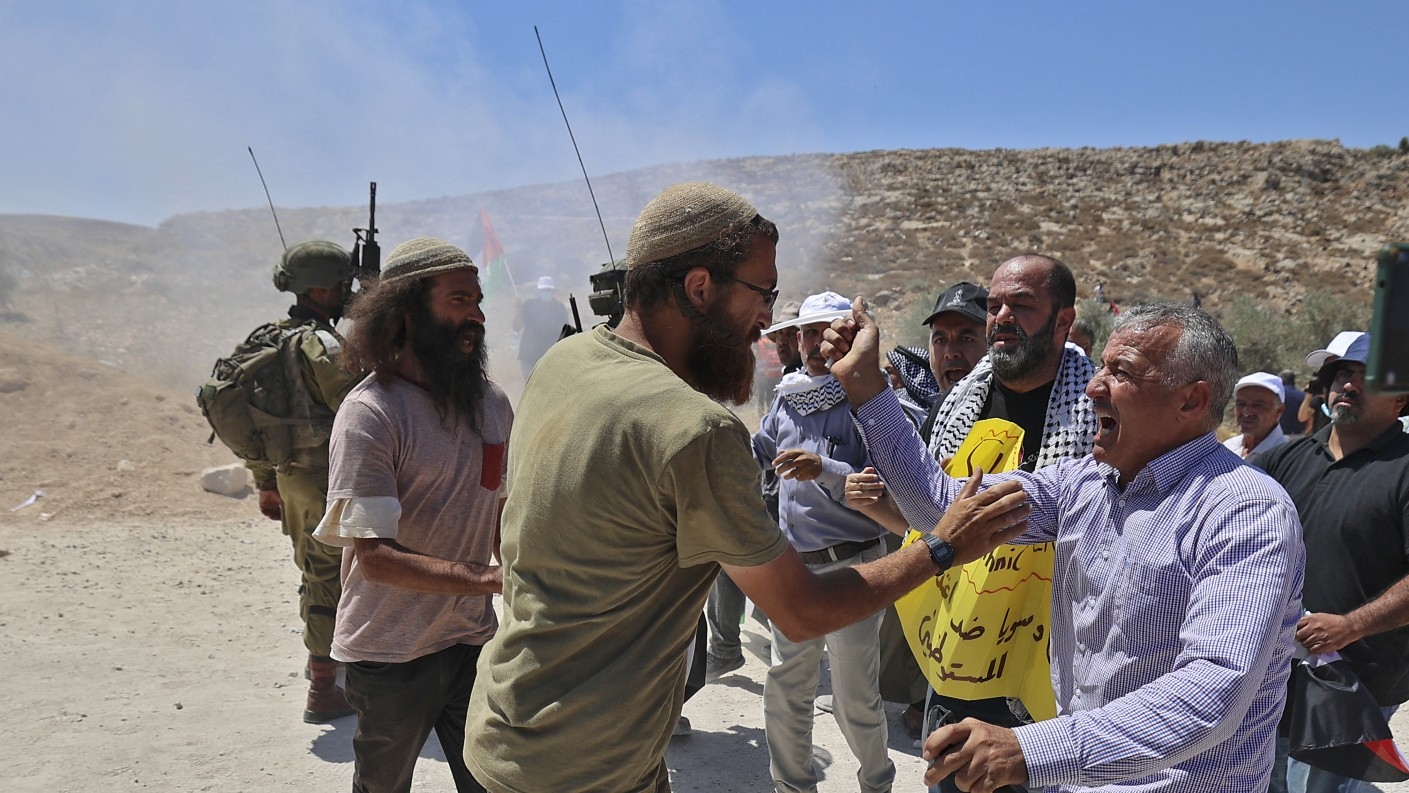
I can still feel the weight of that moment back in 2015, sitting in Beirut and sharing my concerns with a friend who works in journalism. I spoke of Israel’s extensive arming of settlers, and my deep worry that it would lead to a surge of violence and ethnic cleansing in the occupied West Bank.
My friend looked at me as though I was speaking from some distant, irrational place, and insisted that times had changed - that another Nakba was not within the realm of possibility.
Now, here we are, nine years later, and the very nightmare I feared is unfurling before our eyes.
The recent surge of settler terrorism and violence in the occupied West Bank is the inevitable culmination of years of policy decisions. Over the past decade, successive Israeli governments have unabashedly armed settlers, effectively equipping them to carry out their own brand of intimidation and aggression.
National Security Minister Itamar Ben Gvir’s recent decision to distribute even more weapons in the wake of the events of 7 October is simply another chapter in this grim saga.
The motive has always been crystal clear: to embolden settlers as enforcers of the Israeli government’s agenda, spreading chaos and instilling fear among our Palestinian communities. By weaponising settlers, the Israeli government not only perpetuates violence, but also lays the groundwork for further domination, displacement and ethnic cleansing. This strategy prioritises hegemony at the expense of Palestinian lives, safety and dignity.
The latest data from the UN Office for the Coordination of Humanitarian Affairs paints a stark and haunting picture of life in the occupied West Bank. Since 7 October, our communities have been subjected to more than 700 documented attacks, with a daily average of four incidents.
Dark reality
Behind these chilling numbers lies an even darker reality: the constant undercurrent of threats, harassment and intimidation that erodes our sense of safety and stability.
Perhaps most chilling is the undeniable involvement of the Israeli military in many of these settler attacks. This disturbing collusion, combined with a paltry three percent conviction rate for settler violence cases, lays bare a systematic effort to shield perpetrators from accountability.
Follow Middle East Eye's live coverage of the Israel-Palestine war
These aren’t random acts of violence; they are part of a deliberate, orchestrated assault on our very existence, designed to maintain a grip of fear and control over our lives.
The recent coordinated settler attacks on Palestinian communities throughout the occupied West Bank struck fear deep into our hearts. What unfolded after the disappearance of a 14-year-old settler from an outpost near Ramallah was nothing short of horrifying. The massive, organised settler attack on multiple communities left a trail of destruction in its wake.
We are facing a calculated, relentless effort to eradicate Palestinian existence and our rights to our ancestral land
Homes were set ablaze, cars were torched, properties were vandalised, and innocent Palestinians, including a 17-year-old boy in al-Mughayer, paid the ultimate price. These attacks occurred under the protection of Israeli forces, a chilling reminder of the asymmetrical power dynamics at play and the vulnerability of Palestinian lives in the face of such aggression.
The cycle of settler violence continued through this past weekend, tragically highlighted by the recent killing of a Palestinian ambulance driver en route to aid victims of an attack in As-Sawiya village near Nablus. This incident marks the fifth Palestinian fatality at the hands of Jewish settlers since 12 April.
Life for us as Palestinians in the occupied West Bank has become unbearable. The Israeli army’s imposition of checkpoints and detours, often to facilitate the protection of settlers, suffocates our freedom of movement.
These barriers not only hinder our access to vital services, such as education and medical care, but they also strangle our livelihoods, making it increasingly difficult to sustain ourselves and our families.
Devastating effects
I’ve personally felt the impact of these restrictions acutely. I now find myself visiting my elderly mother and family in Nablus far less frequently, despite living only an hour away in Ramallah. The simple act of connecting with loved ones has become a logistical nightmare - and this is only one way in which these policies rip apart the fabric of our lives and communities.
Statistics provided by the West Bank Protection Consortium show that in the past year alone, more than 4,500 children from 117 communities faced relentless obstacles in accessing education. Whether it’s navigating through security checkpoints or enduring daily threats of harassment and violence on their journey to school, these children are being denied the fundamental right to learn and grow in safety.
Towns like Huwwara, once a bustling economic centre for nearby villages, have become a shadow of their former selves amid recurring settler attacks. The devastating impact of these attacks has forced many business owners to abandon their livelihoods and relocate in a desperate bid to survive.
This is just a glimpse into the profound ways in which settler terrorism shapes our lives daily, serving as a forecast of the bleak future that awaits us if these atrocities are allowed to continue unchecked.
The relentless wave of settler violence is already driving people away from their villages and towards city centres for safety. Soon, we may find ourselves trapped in even more isolated urban pockets, surrounded by settlements and the constant spectre of settler terrorism should we dare to venture beyond. We’re becoming prisoners in our own homeland; our very existence is threatened.
We are facing a calculated, relentless effort to eradicate Palestinian existence and our rights to our ancestral land.
We find ourselves confronting this terror with nothing but our courage and prayers, hoping for a miracle to shield us from the looming darkness.
Will the world shake off its slumber and put an end to this descent into catastrophe before it’s too late?
The views expressed in this article belong to the author and do not necessarily reflect the editorial policy of Middle East Eye.
Middle East Eye propose une couverture et une analyse indépendantes et incomparables du Moyen-Orient, de l’Afrique du Nord et d’autres régions du monde. Pour en savoir plus sur la reprise de ce contenu et les frais qui s’appliquent, veuillez remplir ce formulaire [en anglais]. Pour en savoir plus sur MEE, cliquez ici [en anglais].


